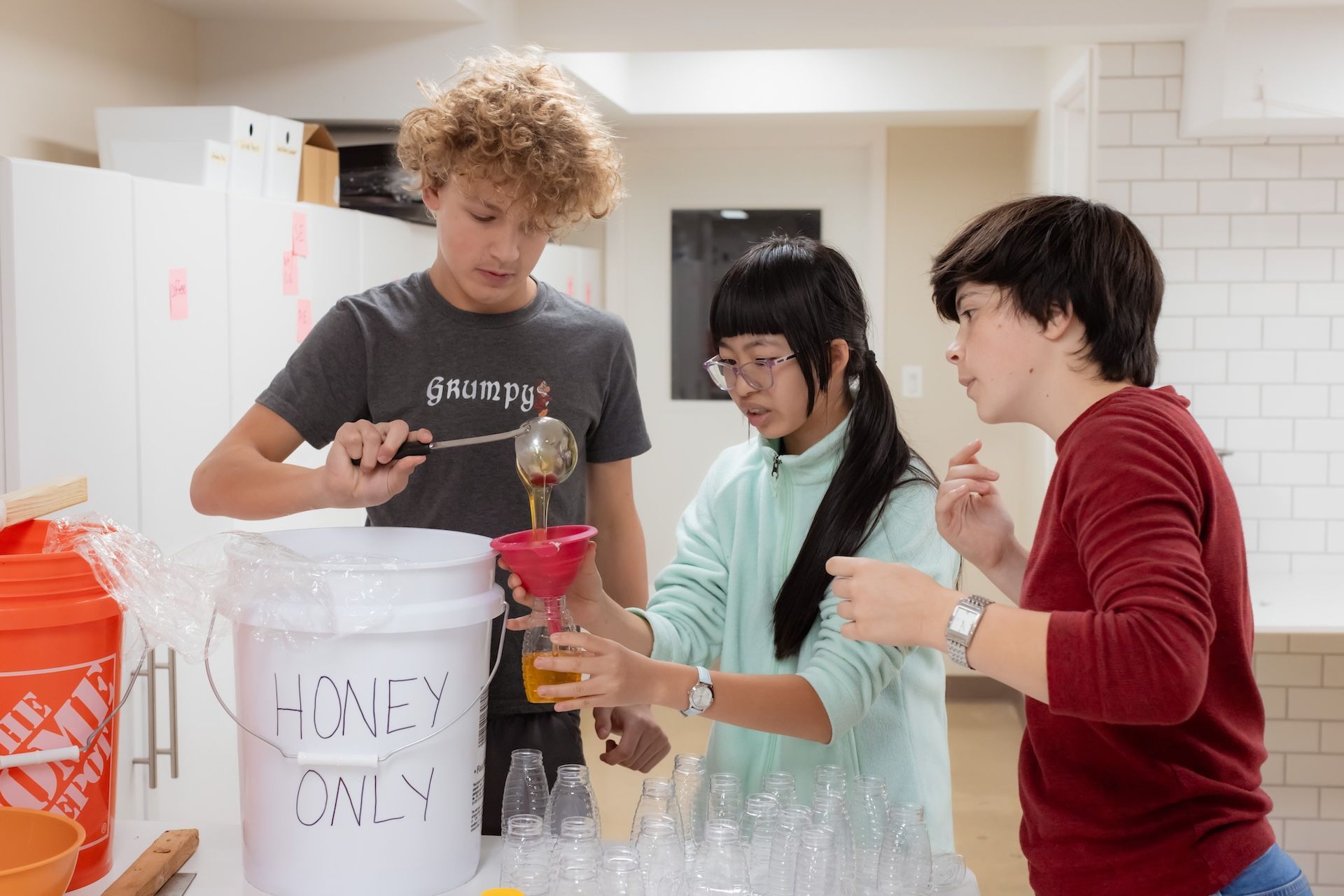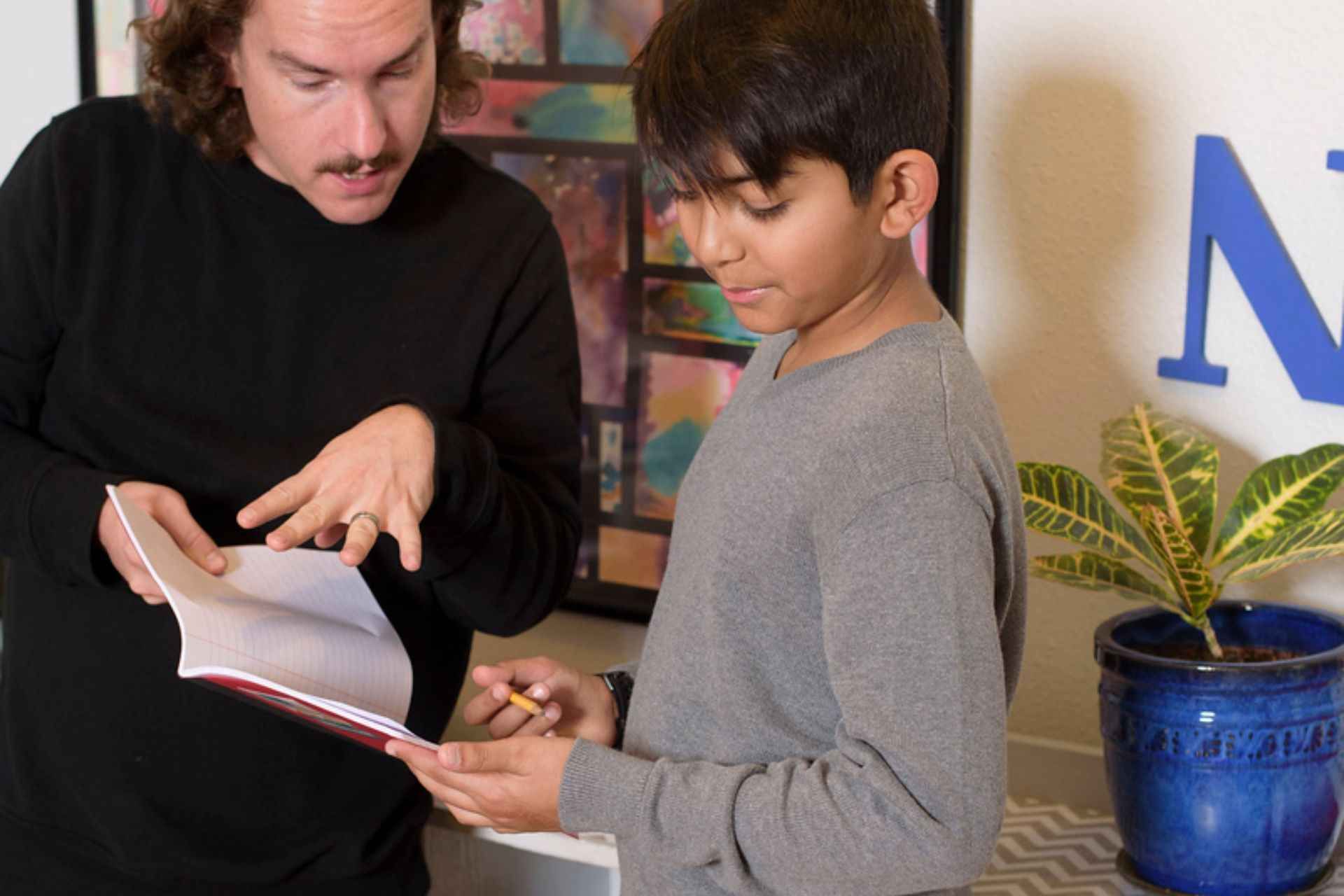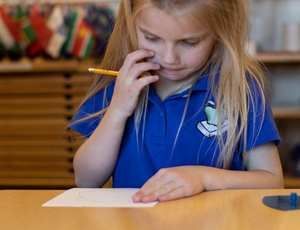Becoming: How Montessori Supports Adolescents

Adolescence. A time when the sentiments of childhood begin to fade and the physical and emotional changes of puberty take hold. A time of dramatic transformation.
Dr. Maria Montessori referred to this stage as the third plane of development, a time when adolescents are no longer satisfied with the protected world of childhood and instead seek something significant, purposeful, and real.
This transition is marked by a profound inner shift. Adolescents begin to separate emotionally from their families and look outward toward society, searching for connection, relevance, and identity. They want to be seen as capable individuals who can live their own lives. There is a deep emotional need to be treated with dignity and to be entrusted with real responsibility.
Dr. Montessori described adolescents as “social newborns.” Having achieved functional and intellectual independence in earlier developmental stages, adolescents now turn toward economic and social independence.
This stage is filled with anticipation and restlessness. Adolescents are asking fundamental questions: How does society work? How do I fit into it? What is my role? These are urgent, developmental inquiries. Adolescents seek to make real contributions and to be recognized for them.
The Drive for Economic Independence
Among the most powerful needs of adolescents is the drive for economic independence. This isn’t just about about earning money. Rather, adolescents are compelled by the desire for worth, agency, and validation. In our society, economic activity is closely tied to adulthood, and young people intuitively understand this. They want to "try on" adulthood by participating in the same world they see shaping the lives around them.
This is a developmental necessity. Adolescents need to:
- Act in roles of genuine responsibility
- Succeed through their own efforts and merit
- Understand the value of time and money
- Be respected as individuals with something to offer
Through these experiences, adolescents are able to form themselves through meaningful contributions.
Production and Exchange: The Foundation of Social Life
In Montessori’s vision for adolescence, meaningful work is essential and at the core of adolescents’ learning. This is especially true when adolescents engage in production and exchange, the fundamental human cycle of creating value and sharing it with others.
Whether growing food, making a product, or offering a service, adolescents begin to understand how society functions through work. They see how individuals and groups contribute to a larger system. Effort, collaboration, and mutual need shape our social fabric.
In Montessori adolescent programs, students decide upon and manage small-scale businesses. These are not simulations. They are real ventures serving real community needs.
Through these experiences, young people:
- Learn how their efforts impact others
- Feel the pride of being needed and useful
- Grapple with the complexities of work, money, and time
- Develop confidence and a growing sense of purpose
This work forms character and builds a sense of dignity that cannot be taught through lectures or assignments.
Interdependence and the Reality of Society
While independence is essential, it is only part of the picture. The deeper goal of adolescence is to understand and embrace interdependence. We are all connected. No one can do everything alone. Contribution to others is both a privilege and a responsibility.
Through real work, adolescents see this web of connection. They experience firsthand that:
- Society functions through collaboration
- Each person has a role to play
- The success of one is often tied to the success of many
Whether they are preparing meals for the community or adjusting a business plan to meet increased demand, adolescents begin to understand what it means to live with others, not just near them. They see how their actions matter.
Valorization Through Work
At the heart of all of this is something Dr. Montessori called “valorization of the personality.” This is the feeling of being capable, of being recognized as a person of value, of seeing oneself reflected in the eyes of others as someone who contributes meaningfully.
Valorization is the antidote to the uncertainty and fragility that so often characterize adolescence. This is how young people become strong, secure, and self-aware. Through valorization, they begin to understand who they are and how they can serve. Ultimately, this is how adolescents prepare for adult life.
To Become Oneself
The adolescent years are often misunderstood as turbulent or rebellious. But from a Montessori perspective, adolescence is a time of becoming, a time when young people, equipped with growing independence, turn toward society and say, "Let me try. Let me contribute. Let me become who I am meant to be."
In guiding them toward economic independence, meaningful work, and social contribution, we are not only preparing adolescents for the future. We are affirming their worth right now, as capable, valuable, contributing members of the human community.
Schedule a tour here in Louisville, Kentucky, to see how we support young people in this process of becoming!






